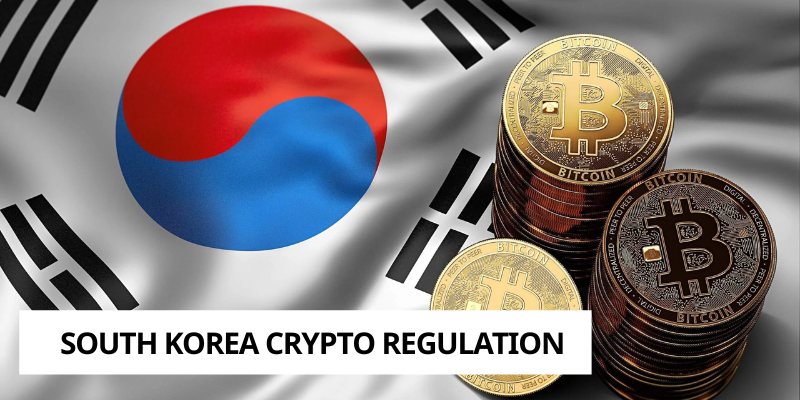The cryptocurrency market, known for its rapid evolution and global reach, faces increasing scrutiny from regulators worldwide. In a decisive step, South Korea crypto regulation has taken center stage, with the government ordering Apple and Google to remove unregistered foreign crypto exchange apps from their app stores.
Announced on April 14, 2025, by the Financial Services Commission (FSC), this move targets platforms like KuCoin, MEXC, and Poloniex, underscoring South Korea’s commitment to protecting investors and enforcing compliance. This article explores the implications, motivations, and broader context of this landmark South Korea crypto regulation, offering insights for investors navigating this dynamic landscape.
The Context of South Korea Crypto Regulation
South Korea is a global crypto powerhouse, with a vibrant trading community and high adoption rates. However, the absence of robust oversight has exposed users to risks from unregulated platforms. The FSC’s latest action addresses this gap by targeting 14 foreign exchanges operating without mandatory registration or Information Security Management System (ISMS) certification.
These platforms, including industry names like KuCoin and MEXC, have been added to a “blacklist” for failing to comply with South Korea’s stringent financial laws. This aligns with earlier South Korea crypto regulation efforts, such as the 2024 proposal to ban crypto trading via credit cards, reflecting a consistent push for market integrity.

The decision, reported by Coin68.com, signals a broader trend of tightening South Korea crypto regulation. By leveraging the influence of tech giants like Apple and Google, the FSC aims to limit access to non-compliant platforms, protecting users from fraud, money laundering, and unstable exchanges. This move echoes global regulatory shifts, such as the U.S. SEC’s actions against Binance in 2023, highlighting the growing intersection of crypto and compliance.
Why South Korea is Cracking Down
The FSC’s rationale for this South Korea crypto regulation is rooted in investor protection. Unregistered exchanges often lack transparency, robust security, or accountability, exposing users to risks like fund mismanagement or outright scams. KuCoin, MEXC, and Poloniex, despite their global popularity, have not met South Korea’s licensing requirements, which include anti-money laundering (AML) protocols and KYC (Know Your Customer) compliance. The FSC’s blacklist, enforced through app store removals, ensures these platforms cannot easily reach South Korean users.
This action also reflects South Korea’s broader economic strategy. As a nation with a sophisticated financial system, it seeks to balance innovation with stability. The rise of decentralized projects like Voltix and Credible, which operate on compliant blockchains like Solana, shows that innovation can thrive within regulated frameworks. By contrast, unregistered exchanges undermine this balance, prompting the FSC to act decisively. The South Korea crypto regulation framework, including the Virtual Asset Service Provider (VASP) licensing, mandates that all exchanges register, ensuring only compliant platforms serve local users.
Implications for the Crypto Market
The removal of apps like KuCoin and MEXC from South Korea’s app stores has far-reaching consequences:
User Impact: South Korean traders, accustomed to global platforms, may face disruptions. However, domestic exchanges like Upbit and Bithumb, which comply with South Korea crypto regulation, are poised to gain market share. This shift could consolidate the local market, benefiting regulated players.
Global Exchanges: Non-compliant platforms face a stark choice: register with the FSC or lose access to one of the world’s most active crypto markets. KuCoin and MEXC, with daily trading volumes in the billions, may prioritize compliance to regain access.
Innovation vs. Regulation: The crackdown highlights the tension between crypto’s decentralized ethos and regulatory oversight. While projects like Voltix leverage decentralized infrastructure, South Korea’s insistence on compliance may push exchanges toward centralized models, as seen in Binance’s global adjustments.
Investor Behavior: The South Korea crypto regulation could drive users to explore compliant alternatives or decentralized platforms. However, it may also fuel VPN usage to bypass restrictions, a tactic noted in Binance’s U.S. regulatory challenges.

Opportunities Amid Regulation
While restrictive, South Korea crypto regulation creates opportunities. Compliant exchanges can capitalize on increased trust and market share. The FSC’s recent exploration of institutional crypto trading accounts suggests a willingness to integrate crypto into mainstream finance, provided regulations are met. For investors, this emphasizes the importance of due diligence—choosing platforms with strong compliance records, like those supporting Voltix or Credible airdrops, reduces exposure to regulatory risks.
Moreover, South Korea’s tech-savvy population and robust blockchain ecosystem position it as a leader in regulated crypto innovation. The FSC’s actions may inspire other nations, such as Singapore or the EU, to adopt similar measures, shaping a global standard for crypto compliance.
Risks and Challenges
The South Korea crypto regulation is not without challenges:
Market Access: Blocking apps may push trading to unregulated channels, such as peer-to-peer platforms, increasing risks of fraud. The FSC must monitor these avenues to maintain investor safety.
Global Pushback: Exchanges like KuCoin may challenge the FSC’s authority, citing crypto’s borderless nature. Legal battles could delay enforcement, as seen in Binance’s disputes with U.S. regulators.
User Resistance: South Korean traders, known for high crypto engagement, may resist restrictions, potentially undermining the FSC’s goals.
Navigating the New Landscape
For crypto enthusiasts, adapting to South Korea crypto regulation requires strategic planning:
- Opt for exchanges like Upbit or global players with VASP licenses to ensure uninterrupted access.
- Monitor FSC announcements via trusted sources like Coin68.com to anticipate regulatory shifts.
- Engage with regulated airdrops, like Credible’s Moons or Voltix’s $VOLT, to balance risk and opportunity.
The FSC’s decision to block unregistered crypto exchange apps marks a pivotal moment in South Korea crypto regulation. By targeting platforms like KuCoin, MEXC, and Poloniex, South Korea reinforces its commitment to investor protection and market stability.
While disruptive, this move paves the way for a more secure, compliant crypto ecosystem, aligning with global trends seen in projects like Voltix and Credible. For investors, navigating this landscape demands vigilance and adaptability. As South Korea crypto regulation reshapes the market, those who embrace compliance will find opportunities in a maturing industry poised for sustainable growth.

